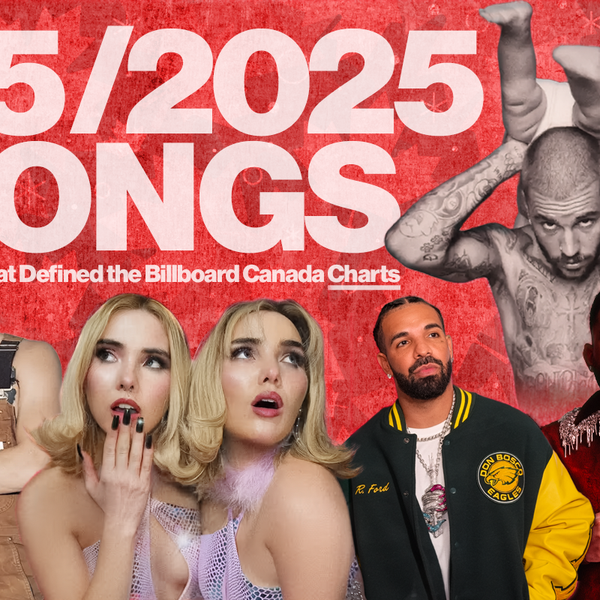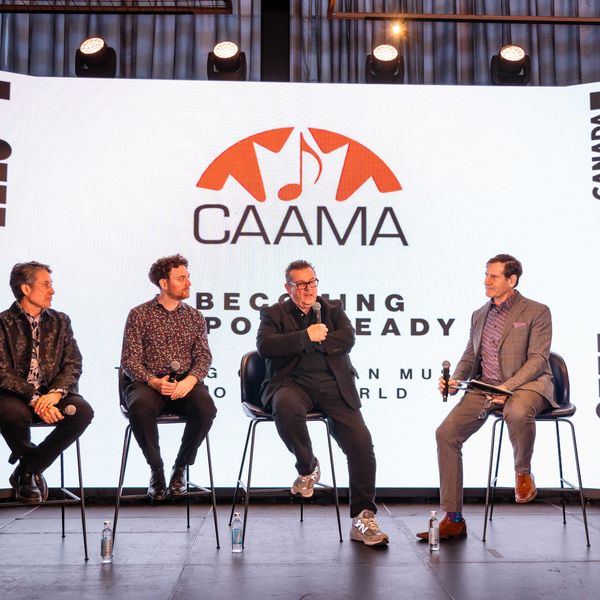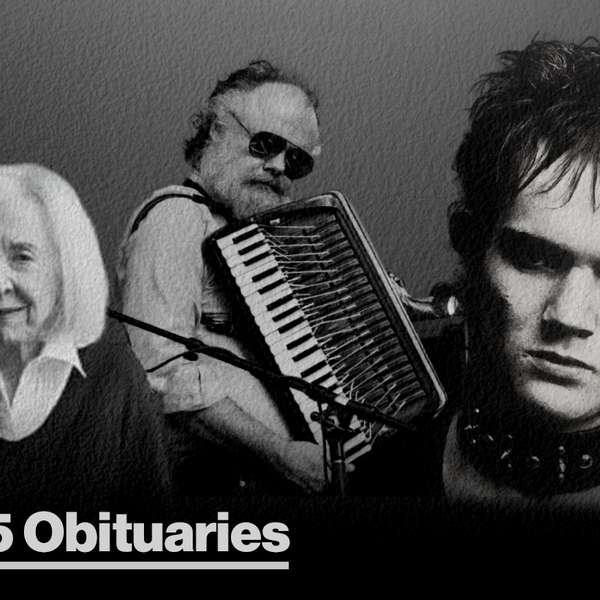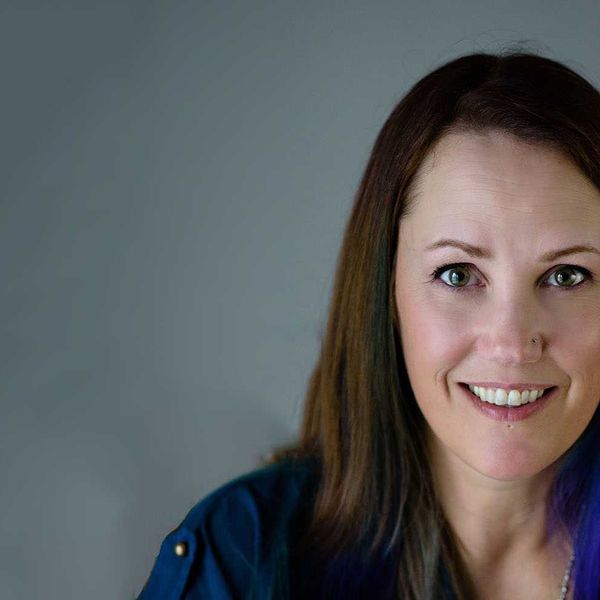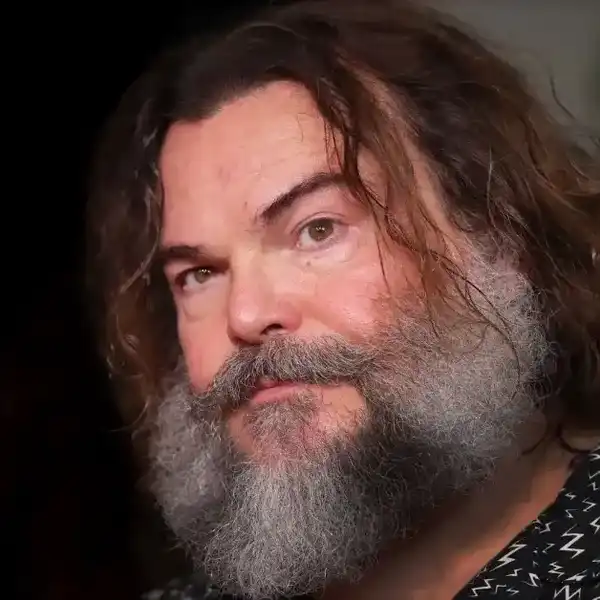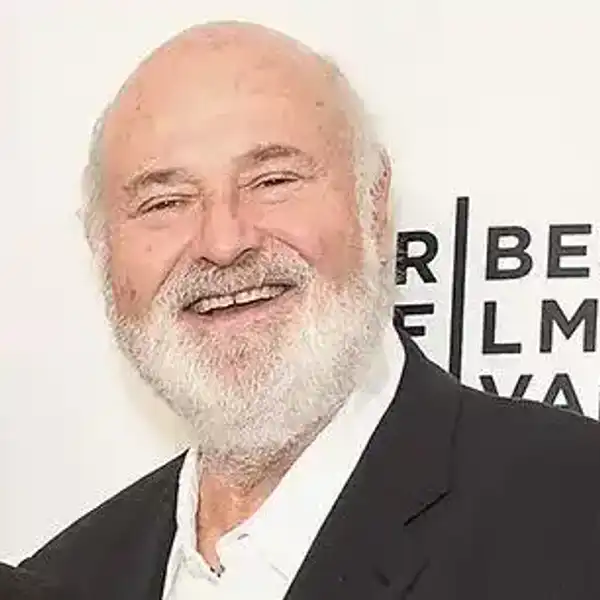CMW 2018 Saturday Wrap
The third annual Music Cities Summit helped lay further foundations for international locales to become more music-minded, and the Global Creators panels suffered a bit of a disappointment when Nile Rodgers arrived too late to attend his scheduled fireside chat.

By FYI Staff
On the final day of Canadian Music Week, panels were divided into two themes: the musician-friendly Global Creators topic and the third annual Music Cities Summit.
Topics include a case for getting attention if you're interested in becoming a music city and a bleak look at making money in the digital age.
9:10 a.m. America's Musical Journey
Tracy Lanza is the vice-president of Brand USA's Integrated Marketing, and she uses music to push tourism into the U.S. Her organization has driven 4.3 million visitors to the country through her innovative marketing methods, so she's got some skills.
Using video to drive home her message, and spotlighting artists in different states, Lanza commissioned five versions of the 1958 Bobby Freeman hit "Do You Want to Dance" under the campaign umbrella of 1 Song, 5 Artists, 5 Genres and 5 Cities and played two of those videos for the audience: one by Puerto Rican neo-soul singer Calma Carmona and Atlanta rapper Cam James. This was designed to illustrate how music and cultures cross borders, embrace diversity and fit into the mosaic that is America. Lanza says that video travels well and that the appeal is not only to music lovers but those who just want to visit different cities, and will be impacted by the storytelling nature of the videos. A Roku series based on this concept is underway, and Lanza says more may be planned for in the future. As much as these were great, Ontario Tourism did something similar in a bunch of TV spots that featured different local singers five years ago. If you play, they will come. (Nick Krewen)
9:35 a.m. Music Officers Meet Their Match
This conversation ended up being less adversarial than perhaps Music Canada vice-president Amy Terrill had hoped. The idea was to sit London, Ontario's Cory Crossman and Seattle's Kate Becker opposite each other for a conversation that Terrill hoped would make us feel "uncomfortable," maybe expecting one to slip up or drop a state secret or something. But it was a friendly exchange.
Most of the revelations came from Seattle's Becker - about how she helped establish an all-ages scene; brought the different facets of police, medics and promoters together for "an honest conversation" to help fight a drug problem that was coursing through Seattle clubs, and how Seattle has developed a 10-year plan of promotion around three tenets of branding: as a city of musicians, a city of live music and a city of music businesses.
For his part, Crossman talked about the importance of having a team, reaching out to politicians and educating them on numerous music concepts and the legacy of London, Ontario - and how a census helped bolster support for the music scene. No awkwardness here - just some good research ideas between two parties who hold strong mutual respect. (Nick Krewen)
10:00 a.m. - Exploring the World of Playlists
Do you want a full-time job? Here it is! In today’s self-reliant climate, getting heard and getting played have never been easier and harder at the same time. The more this panel rolls out the work slate, the deeper I sink into my folding chair. What would Mozart have said of today’s demands? “Fuck it; I’m becoming a mortician! Algorithms and streams? What about bar 178 when the second viola comes in a measure too early in Don Giovanni. That’s what keeps me up at night!”
So, this panel, moderated by IRR/IMMF/UK's Jake Beaumont-Nesbitt and including MomandPopMusic's Jessica Page, Believe Distribution Service's global head of trade marketing, Leigh Morgan, and LyricFind's Catherine Fournier, came to some good conclusions: that recordings have a longer lifespan when running across several formats and music has to be supplied on a continuous basis. (Bill King)
10:05 a.m. - From Scratch: Implementing and Imagining New Programs & Partnerships:
Kelly Symes was first touched by music at an early age: her parents took over and created the popular Black Sheep rural venue in Wakefield, Quebec. Eventually, she grew up and now Symes is the general manager of the Ontario Festival of Small Halls, which has grown from three to 35 venues within five years and stages concerts in rural community halls that don't usually get concerts. This is just one of the successful fresh ideas promoted during this entertaining panel, which included Enzo Mazza, CEO of FIMI, talking about how he helped Milan establish a Music Week to complement other artistic weeks in the city, with each festival cross-promoting the next. Whether it was Memphis publicist Elizabeth Calwein talking about her efforts to help export Memphis talent or Madalena Salazar touting her Western States Tour Federation, themes of engaging community involvement and even Chamber of Commerce financing were common and effective. (Nick Krewen)
10:00 a.m./10:15 a.m. - Merlin: 10 Years of Indie Service/Indie Labels' New Era
Prior to the panel discussion, Merlin CEO Charles Caldas gave a presentation outlining the huge advances his company has made on behalf of the independent sector. Merlin turns 10 this year, and Caldas confessed he couldn't have foreseen the impressive growth of the global music rights agency and its revenues. "We operate in 53 countries on behalf of tens of thousands of labels," he noted. Projected income in 2017/18 is $470M (US), up from $353M the previous year. Major growth in streaming revenues from such markets as Latin America, China and Southeast Asia are prime drivers (Brazil is now a bigger market than Canada or France). The boom in streaming globally means 42% of Merlin members make more money outside of their home base on the digital side (the figure is 17% for physical). "We're looking ahead with a huge amount of optimism," said Caldas, who explained that indie labels and artists now compete on a level playing field. "The top of the market is less dominant now. The belly of the beat, the middle, has expanded."
His positive outlook was reinforced by the panel, featuring notable indie label execs Justin West (Secret City), Laura Dath-Lienenkamper (Ferryhouse) and Nick Blandford (Secretly Group). All stressed that the rise of global streaming had been a big boost, with West citing that as a reason his act Patrick Watson just toured India. "We are a digital-first company now," he explained. Blandford refreshingly stressed, "we are not data-driven regarding signing talent. You have to be passionate about your artists," a statement his colleagues agreed with. "We have signed artists with no numbers," added West. (Kerry Doole)
11:20 a.m. - Celebrity Music Cities: How Cities With Global Reputations Tackle Challenge & Leverage Noteworthiness
According to the panel header, Austin, Memphis, Detroit and Toronto qualify as celebrity music cities. Reps of the music scene in all those cities contributed to this discussion, explaining the unique characteristics of each scene as well as pointing to common areas of concern. Austin and Toronto share the challenge of a vibrant economy that's creating problems of affordability for artists, music venues, studios and rehearsal spaces. Toronto city councillor and music scene booster Josh Colle drew effusive praise from moderator Lynn Ross when in fact his City Hall team is being criticized for lack of effective action on the file. Colle sounded defensive, moaning that, "if people have to wait to get into a bar, it is the City's fault." The most eloquent panellist was Boo Mitchell, son of legendary Memphis producer Willie Mitchell (Al Green) and head of Royal Studios. He urged music cities like his to "use history as a foundation to build upon, but support your new artists. We need to find the next Elvis or Isaac Hayes." Detroiter Adrian Tonon explained that the presence of Kid Rock and Eminem in the beleaguered city had been a real asset, while Austin's Omar Lozano praised Gary Clark Jr. for helping save local venue Antone's. Hmmm...maybe Drake should open an R&B club here, not a celebrity restaurant. (Kerry Doole)
11:20 p.m. Emerging Music Cities: How to Get on the Music Map
Emerging cities and organizations that don't have the profile of a Toronto or an Austin are trying to get that next level, and the panel of Mississauga Film & Television office's Carmen Ford, Kitchener's Economic Development Arts and Creative Industries Manager Silvia Di Dinato; Georgetown University professor and author Anna Calenza, Collingwood's Arts & Culture Coordinator Tanya Mazza and Macon, Georgia entrepreneur and radio station co-owner Wes Griffith and Monterey, Mexico's Ricardo Haas-Rivera shared their successes and challenges about climbing that next rung of the ladder. Some, like Griffith, who is trying to help rebuild Capricorn Studio, has used his own private resources to change things in Macon. Others, like Mazza, helped launch an original music festival initially within the confines of the town's annual Elvis Festival, before establishing a separate identity of their own. Author Calenza said branding is important, but don't forget the history of the area that you're dealing with. And when it comes to engaging local governments, show but don't tell: show them the economic impact of music and your quest to get funding and cooperation will be easier. (Nick Krewen)
1:20 p.m. - New Orleans: A Case Study On Cultural Heritage, Economic Development and Audience Development in NOLA
This session unexpectedly got a little tense, as moderator Ashlye Keaton, a co-founder of the ELLA Movement, kept interrupting Chief Howard Miller as he attempted to explain the history of the Mardi Gras Indians - at her request. She got overbearing enough that he hung his head in frustration, although all insisted they were old friends and that she did this all the time. It detracted from making the point that everyone in New Orleans' has everyone else's back: Melanie Merz, the engagement officer for the legendary city radio station WWOZ and Jordan Hirsch, who operates the music heritage website A Closer Walk, have helped lead the fray in a city that Keaton calls "broken" and "corrupt" without much municipal support, and it's forged an alliance with the Mardi Gras Indian culture that is supportive and has helped lead the tribes to better relations with the government. But despite all the adversity, it's the music that goes a long way to binding the culture together, seemingly building bridges instead of walls in a city that is loved worldwide by many for its unique character. (Nick Krewen)
1:40 p.m. Fireside Chat: Nile Rodgers and Jesper Kyd - Gamer Soundtrack Guru Meets Rock and Roll Hall of Famer
This event disappointingly didn't live up to its billing. Nile Rodgers' private plane was delayed in Boston after receiving an honorary doctorate from Berklee College of Music, and he missed the session (he was later inserted into the Synch Summit lineup, but we were unable to catch that.)
The vast majority in the audience was clearly there to see the superstar producer/musician and was disappointed to only get Kyd, the composer of music for such hit games as Assassin's Creed, Hitman, and Darksiders. He described that creative process in reasonably compelling fashion, but this was not the topic we wanted to hear. Kyd explained that he started writing tracks on a Commodore 64 in his early teens, and now gets to score for orchestra in such studios as Abbey Road and Air, proof of the lucrative nature and big budgets of the gaming business. To his credit, Kyd expressed a preference for analogue instrumentation, including vintage synths. - (Kerry Doole)
4:00 p.m. SAC: An Update on Making Money in the Digital Age
If you were truly looking for an update as to how songwriters are surviving in these days of streaming, the answer is a bleak one: they aren't. Damhnait Doyle offered a good analogy by mentioning that nowadays, even if one of her songs logs hundreds of thousands of streams, she's lucky to walk away with $35. Songwriters Association of Canada president emeritus Eddie Schwartz, writer of the charttopping "Hit Me With Your Best Shot," said a hit record used to net him a $45,000 cheque and time to write on his craft. These days, it barely pays for a pizza. And lawyer Safwan Javed said songwriters are lucky if they make 13% of a stream, the full value of which is less than a penny. The panel, which also included moderator Rudy Blair and CMPA Executive Director Margaret McGuffin, urged people to band together and take their case to Ottawa. This is a similar refrain, but the chorus needs to change so that songwriters can afford to write the soundtrack to our future lives. All they want to do is make a living. (Nick Krewen)


